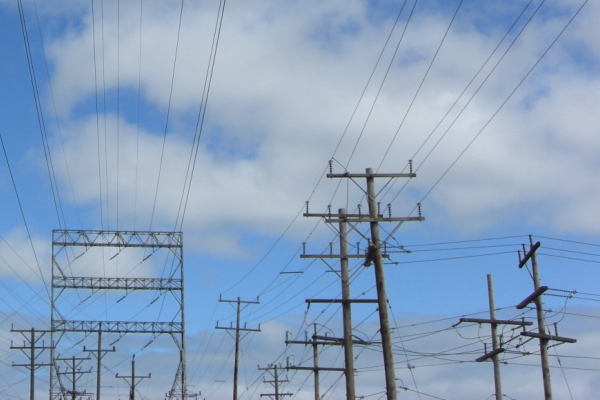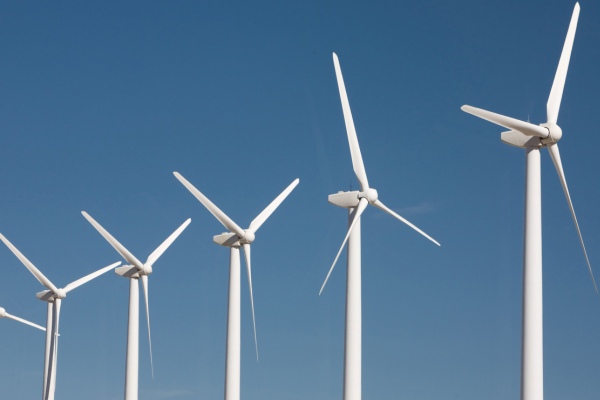Energy Sector in Ghana: Ministry of Energy and Petroleum
Ghana is well endowed with a variety of energy resources, including biomass, hydrocarbons, hydropower, solar and wind. Still, some improvements are needed. The Minister of Energy and Petroleum presents the energy sector in Ghana and shares his vision for the future.
Interview with Emmanuel Armah-Kofi Buah, Minister of Energy and Petroleum
What is your overview of the energy sector in Ghana and how do you assess the Ghanaian energy economy?
Ghana is committed to ensure that it maintains the current peace and stability we enjoy. We have the necessary legal frameworks in place to ensure favourable returns on investments. A lot of companies are already taking advantage of Ghana’s investment climate and we are encouraging more to come.
Ghana is well endowed with a variety of energy resources, including biomass, hydrocarbons, hydropower, solar and wind. It has the capacity to produce modern bio-fuels and is exploring options to develop nuclear energy.
The energy sector’s vision is to ensure secure and sustainable supply of energy for Ghana and beyond and to develop an Energy Economy to secure a reliable supply of high quality energy services for all sectors of the Ghanaian economy and also to become a major exporter of oil and power.
The Government remains focused on this vision and has, through the Ministry of Energy and Petroleum, published the National Energy Policy document and the Energy Sector Strategy and Development Plan to provide a better understanding of Ghana’s Energy Policy framework as captured in the “Better Ghana Agenda”.
These provide concise outline of the Government’s policy direction that seeks to ensure universal access to electricity and choice of alternative modern forms of energy to all Ghanaians without exception by 2020.
What is your assessment of the objective to become a major exporter of oil and power and to ensure availability of and universal access to energy services by 2020?

A cursory glance at what we have done so far to achieve our objective shows that we are really on course. In the area of oil production, we have put together the necessary legal framework to govern the industry so as to ensure transparency in the sector. We are empowering the national oil company, the Ghana National Petroleum Company (GNPC) to be able to undertake roles in the whole value chain in the petroleum upstream sector as an operator, with its own resources, in the near future. Since the discovery of the Jubilee field, 23 other discoveries have been made.
In the power subsector, we are vigorously adding to our generation capacity. Our aim is to have the installed generation capacity increased from the current capacity of about 2,500 to 5000 megawatts by 2016. Currently, our electricity access rate is a little over 72 percent and we intend to increase this to over 90 percent by 2016 through our ‘Energy for Every Home’ project.
What is the role of the Ministry in the development of the country and the sector? What is the Ministry’s social responsibility?
The Ministry’s role is to formulate, implement, monitor and evaluate energy sector policies that will create the environment for the development of a reliable high quality energy service at the minimum cost to all sectors of the economy. In effect, the Ministry has oversight responsibility on all sectors relating to energy in the country.
What are the challenges for the Ministry in ensuring that energy is produced and supplied in a form that has no adverse health, safety and environmental impact?
The Ministry considers health, safety and environmental impacts a very serious aspect of our quest to ensure reliable energy supply. Various institutions clothed with the mandate to ensure adherence to HSE standards have been empowered through laws and resources to deliver on their mandate. The Environmental Protection Agency (EPA), for instance, is benefitting from a World Bank Oil and Gas Capacity Building Project fund.

What is your strategy to attract international investments?
The government recognizes that it cannot on its own achieve the power generation capacity target. It has therefore created the necessary environment for independent power producers (IPPs) to come in. Already, the political stability the country enjoys is one aspect that attracts international investments. The country is committed to ensure that it maintains the current peace and stability we enjoy. We have the necessary legal frameworks in place to ensure favourable returns on investments. A lot of companies are already taking advantage of Ghana’s investment climate and we are encouraging more to come.
What is your vision for the future of the Ministry and the outlook for 2013 and onwards?
The Ministry is aggressively pursuing its vision of ensuring secure and sustainable supply of energy for Ghana and beyond. We are focused on this vision but we are also aware of the challenges. By the close of 2013, we would have added a total of 534MW when the remaining two units of Bui hydropower dam come on stream bringing total installed capacity to 2,845.5MW. In 2014, we will add a total of 342MW with the completion of 220MW Kpone thermal power plant; 110MW Takoradi II Expansion project and another 12MW solar plant. This will bring total generation to 3,187.5MW. A total of 1,060MW is expected from four planned projects in 2015 increasing total generation to 4,247.5MW. In 2016, 1,711MW is expected from additional seven planned projects, bringing aggregate generation capacity to 5,958.5MW.
We are also exploring renewable energy options and our vision is to have 10 percent of our generation mix coming from renewable sources by 2020. Consequently, we have enacted a Renewable Energy Law that will enhance investments in this area.
In the petroleum subsector, we have just approved the plan of development for the Tweneboa, Enyenra and Ntomme (TEN) project. Jubilee is expected to hit its plateau production of 120,000 barrels per day by the end of the year. We are also working to complete our gas infrastructure project by the end of the year.